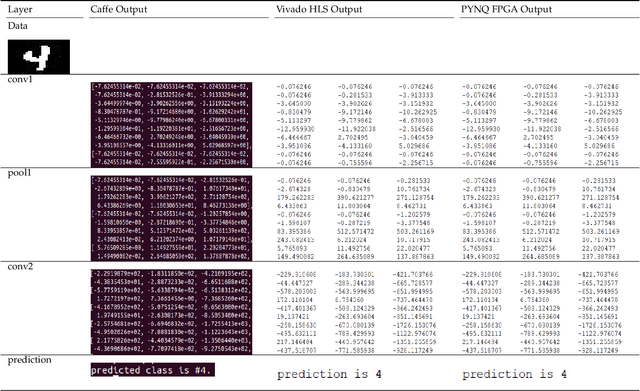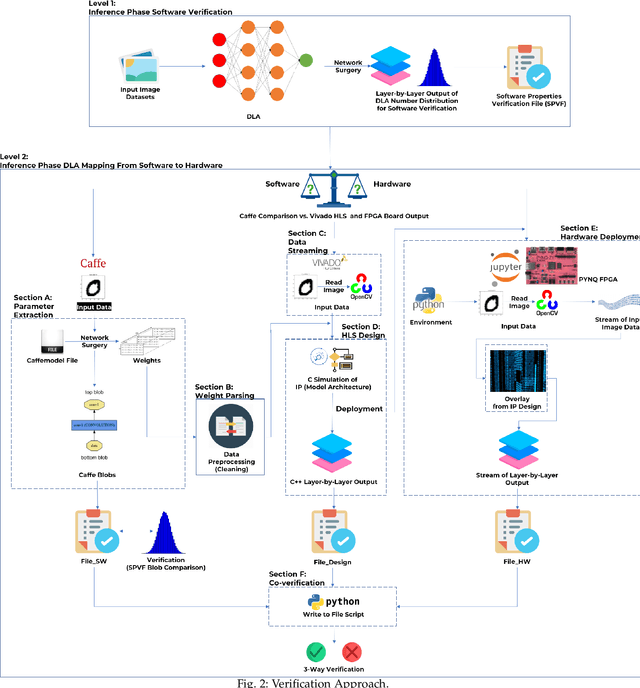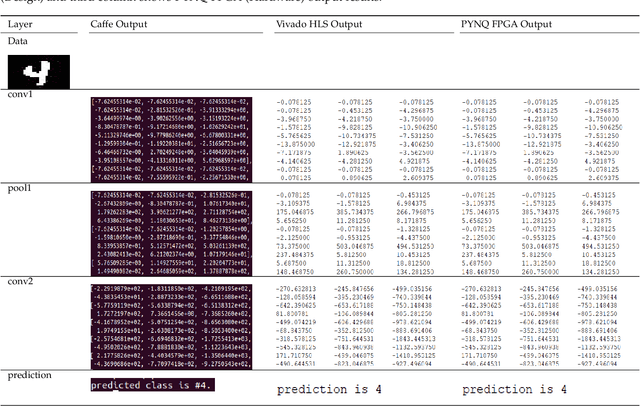2L-3W: 2-Level 3-Way Hardware-Software Co-Verification for the Mapping of Deep Learning Architecture onto FPGA Boards
Paper and Code
Nov 14, 2019



FPGAs have become a popular choice for deploying deep learning architectures (DLA). There are many researchers that have explored the deployment and mapping of DLA on FPGA. However, there has been a growing need to do design-time hardware-software co-verification of these deployments. To the best of our knowledge this is the first work that proposes a 2-Level 3-Way (2L-3W) hardware-software co-verification methodology and provides a step-by-step guide for the successful mapping, deployment and verification of DLA on FPGA boards. The 2-Level verification is to make sure the implementation in each stage (software and hardware) are following the desired behavior. The 3-Way co-verification provides a cross-paradigm (software, design and hardware) layer-by-layer parameter check to assure the correct implementation and mapping of the DLA onto FPGA boards. The proposed 2L-3W co-verification methodology has been evaluated over several test cases. In each case, the prediction and layer-by-layer output of the DLA deployed on PYNQ FPGA board (hardware) alongside with the intermediate design results of the layer-by-layer output of the DLA implemented on Vivado HLS and the prediction and layer-by-layer output of the software level (Caffe deep learning framework) are compared to obtain a layer-by-layer similarity score. The comparison is achieved using a completely automated Python script. The comparison provides a layer-by-layer similarity score that informs us the degree of success of the DLA mapping to the FPGA or help identify in design time the layer to be debugged in the case of unsuccessful mapping. We demonstrated our technique on LeNet DLA and Caffe inspired Cifar-10 DLA and the co-verification results yielded layer-by-layer similarity scores of 99\% accuracy.
 Add to Chrome
Add to Chrome Add to Firefox
Add to Firefox Add to Edge
Add to Edge